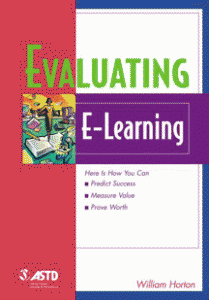 When I was nine, I sent away for a pair of X-ray glasses advertised in the back of a Superman comic book. The advertisement promised that I would be able to see through objects. To my disappointment, all I could see were halos of light around the edges of objects. It was a tough lesson about exaggerated claims.
When I was nine, I sent away for a pair of X-ray glasses advertised in the back of a Superman comic book. The advertisement promised that I would be able to see through objects. To my disappointment, all I could see were halos of light around the edges of objects. It was a tough lesson about exaggerated claims.
As a young trainer, I came across a recommendation to intersperse short training sessions with naps for the students. The recommendation seemed a bit strange, but it claimed to be based on research and included the universal seal of approval: a bibliographic citation. After I tried the procedure and could not get it to work, I tracked down the article cited. It turned out that the article merely summarized research done elsewhere. So, I followed its citation back to yet another article, where I found that the trail continued. In this pre-hypertext era, tracking the recommendation back 12 jumps to its original research took 5 weeks and involved trips to three libraries. And, when I finally located the original article, I found it concerned research on cockroaches!
Today, when something promises to slice, dice, prevent acne, cure baldness, relieve indigestion, or guarantee instant riches, I subject it to “open-minded skepticism”–receptiveness to ideas that must prove themselves. In the wake of the dot-com financial shakeout, potential customers, clients, and investors for e-learning are joining me. Unless you are one of the tribe born every minute, some of the overblown claims made for e-learning should have you demanding proof as well. Appropriate skepticism is essential for the evolutionary success of good ideas. More good ideas are scuttled by the blind faith of their zealous advocates than by the whining chorus of their naysayers.
Who Is This Book for?
This book is for people who are not satisfied with the Polyannaish claims of self-interested suppliers, consultants, and developers or the dire predictions of the neo-Luddites who fear technological change. It is for those who want to know whether e-learning really works. It is for those who want to know how well it works. And, it is for those who have to prove that it works. This book’s audience may include anyone producing e-learning or considering buying e-learning, such as:
- training managers wondering whether e-learning makes sense
- team leaders of e-learning initiatives who must sell e-learning to their companies
- leaders of a for-profit training firms who must sell to skeptical buyers
- HR executives concerned with balancing the costs of alternative approaches to raising levels of knowledge and competence
- people who want to know whether e-learning will work for them.
What Will This Book Do for You?
This book will help you make decisions about e-learning based on proven performance rather than vague promises. It offers simple, specific techniques to estimate costs and prove results. If you are considering buying e-learning courses, it will show you how to objectively evaluate the contenders and estimate their total costs. If you are developing e-learning, it will teach you to predict and document financial returns for your projects. If you sell e-learning courses, it will show you how to demonstrate objectively the effectiveness of your courseware to skeptical buyers. If you champion e-learning in your organization, this book will show you how to demonstrate its contribution to prized corporate objectives.
What’s Special About This Book?
This book is your toolbox for evaluating e-learning. This book shows you a gamut of measures from smiley faces to return-on-investment. It is chock-full of examples, worksheets, and specific procedures. It is very action oriented. At the end of each chapter, “Your Turn” sections guide you in applying what you have just read to evaluating your e-learning project.
The book’s companion Website (watertightness/evaluating/) contains spreadsheets, forms, and worksheets for analyzing the costs, benefits, and returns of your e-learning projects.
William Horton
September 2001